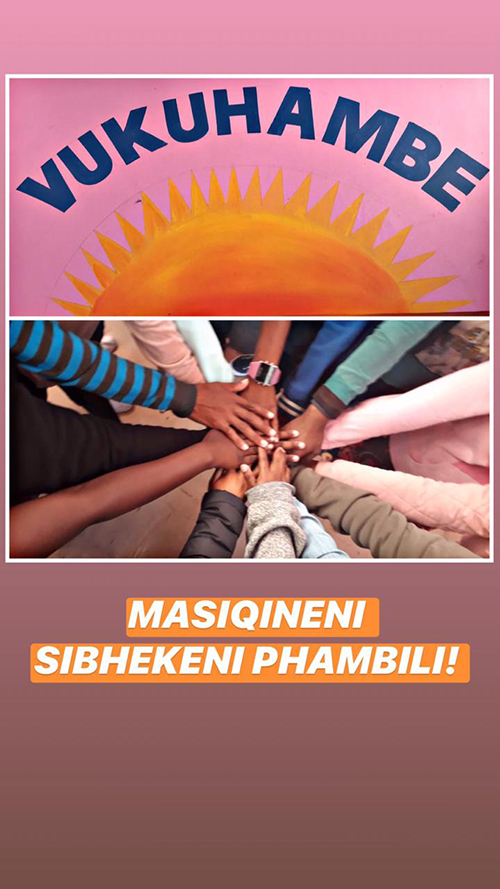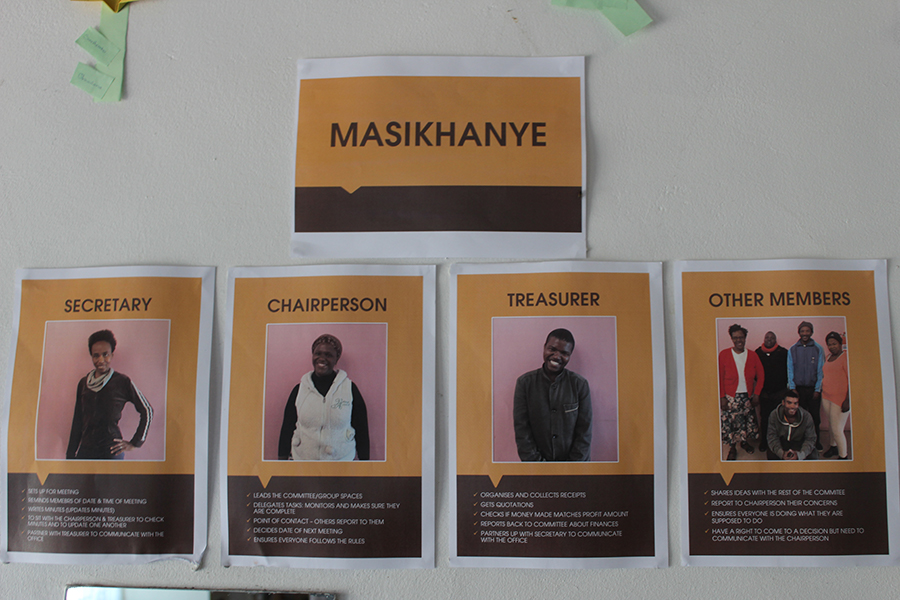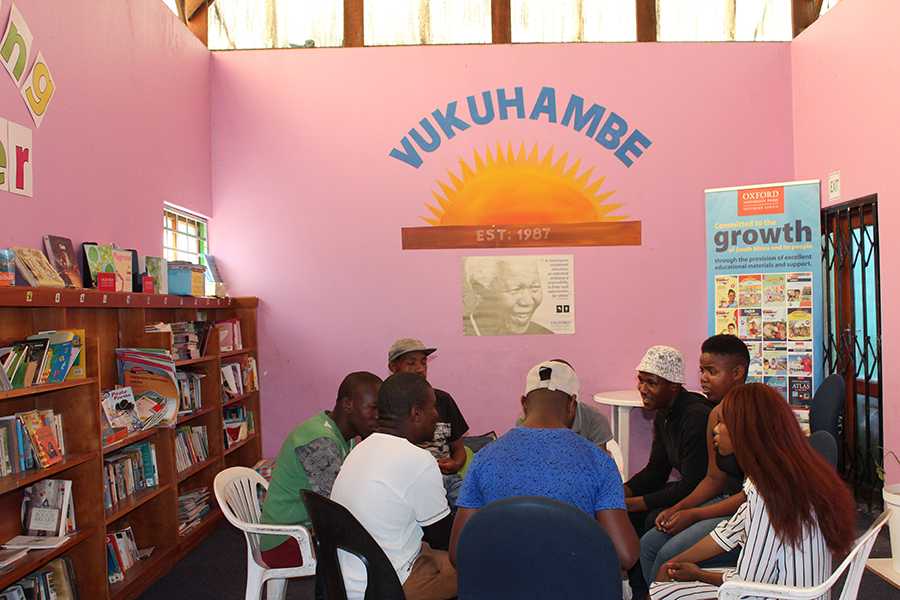We Can!

Vukuhambe Disabled Centre is a Non-Profit Organisation (NPO), a community-based organisation (CBO) and protective workshop for people that have physical or intellectual disabilities (ID) or both. This organisation consists of 65 members, and the age range of these members is between 18 and 65 years. Most of the members have only obtained a grade 6 or grade 7, and some then move onto Siviwe School of Skills until the age of 18 years and thereafter they come to Vukuhambe.
So where does the story of change begin?
The UCT clinical educator met with Thozi and Frozie in 2017 to discuss the possibility of Vukuhambe Disable Centre being a practice learning site. They developed a shared understanding of the needs and challenges that the persons with disabilities in Gugulethu experience. The organisation also had challenges and so it was agreed that community development practice OT students could add value to the both the organisation and addressing the needs of persons with disabilities. Students started Block 1 in 2018 but due to community protest actions disruptions, it was a challenge getting students transported safely to the site. We sadly put the initiative on pause. In the 2 weeks that students were there, they had formed relationships with workshop members and staff and were able to gain a deep understanding of the socio-political issues affecting their ability to thrive as an organisation but also to participate in activities that brought them meaning and purpose.

In 2019 we re-connected and students started Block 1 in February. The students then started a context related assessment process to uncover the needs and develop authentic relationships with the members and staff of Vukuhambe. The main needs that were identified were that the members did not have much activities to engage in during the day and gaining more opportunities to learn new skills were their main priorities. Instead of going the easy route of simply just gathering a few contacts and arranging potential skill building spaces for the members. The students embarked on a journey of capacity of building with the members and staff. Through the process of developing a deep understanding the students needed to be aware of their own intersectional identities and how this may impact building true authentic relationships. The students were often from a different cultural background or race or social status and needed to be aware of this at all times. The second need that was identified was that of fundraising efforts in order to sustain the organisation as well as look for opportunities where contracts could be secured for the members to potentially earn a stipend or income whilst attending Vukuhambe Disable Centre
So, What did we get up to in OT spaces?
The students have taken the needs identified by the members and have started designing how they would like to address together. Through engaging with the workshop manager and the staff it was found that there are members who could formulate a working group or committee to further unpack and discuss what could be done to support the develop of the organisation. A few members were highlighted and they named themselves The Masikhanye Committee. The committee decided that they would start with small fundraising initiatives, these included the making and selling of soup and vetkoek during winter and chicken feet. The role of the OT spaces were simply to provide a space for dialogue and planning of what the committee would like to achieve. These spaces were facilitated using the action -reflection -learning and planning cycle which was later a tool that the committee used themselves to unpack each initiative. What makes the process unique and different, is that through doing the individuals and the collective as a group started to see the potential they have and realising different possibilities for themselves. They also identified areas within the committee that needed further development, such as the various roles and responsibilities of the committee. These were unpacked further in group spaces, where the OT students facilitated productive conversations and together an understanding of the various roles emerged.

Furthermore, the need for more contracts were not ignored, the organisation already had a contact with Hangerman, dissembling hangers. The students then worked alongside the Workshop supervisor in a capacity building space. Together they have formulated letters and emails to corporate stakeholders. One of the successes was securing a contract with Conro Precision, the workshop supervisor together with the students formulated questions in preparation to secure the contract.
So did it work? As part of monitoring and evaluating the process and campaigns the students have developed with the members and staff, we recorded the manager Thozi to share his thoughts (Please see video here). Overall, we realise and appreciate that Development work is a slow process. The staff has identified that before having the OT students, they did not realise that the members were capable of creating and engaging in entrepreneurial skills and deciding for themselves which skills they would like to develop. The members have demonstrated that having an intellectual disability or physical disability does not prevent you from engaging in meaningful occupations when given the right support.
Many of the members experience difficulties within their communities and are not valued by their community members and even family. Through the campaign, the members are able to realise their own potential. One of the members started at the beginning of the year at Vukuhambe, she was quite shy and did not engage much. She is now the secretary of the Masikhanye committee and taking minutes for all meetings. Furthermore, she has been asked by the Association for persons with Disabilities to be part of their committee, representing Vukuhambe. There are many individual success stories however as a collective the committee can exercise their roles while benefiting the entire organisation.
What’s the next chapter?
Masikhanye Committee: Since the students have focused on capacity building of committee members, facilitating a process where they get to understand their various roles and responsibilities moving forward they would like to working towards these goals:
- Identify a potential community member who can train the members of Vukuhambe in beading.
- To work on their beading - takkies project to serve as an income generation project for the members at Vukuhambe
- To think through other projects that will contribute to fundraising for Vukuhambe
- To continue using the action-reflection -learning -planning tool when developing new projects
Simunye Committee: The Simunye Committee has identified the need for further skill development for all members at Vukuhambe. They have also been able to develop their skills as a committee to consult the entire organisation about which skills they would like to develop, and not decide for everyone. Collaboratively they have identified:
- Beading, Baking and Sewing
- Working collaboratively with the Masikhanye Committee who are raising funds for the organisation through various means,to ensure that resources are available for the skill development initiatives.
- To work on obtaining donations for the respective skills development programmes they would like to initiate.
